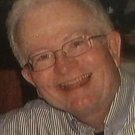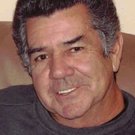Timothy Charles Miller
RENSSELAERVILLE — If ever a man could be said to have discovered his own personal Shangri-La, Timothy Charles Miller might have been that man.
Dr. Miller died Tuesday, Jan. 17, 2017, at Albany Medical Center after a stroke. He was 69.
After a long and dedicated career as an educator, he and his wife retired to this hamlet about 15 years ago, thanks to having spotted an ad in The New York Times for a house in “the prettiest village in New York State” — a village they had never visited but which they were to grow to love unreservedly, and where Mr. Miller was to enjoy a remarkably full and rich retirement compounded of public service, daily hikes, and all the simple neighborly pleasures of small-town life.
Timothy Miller could also be said to be a man who disproved the old canard that American lives do not have second acts. His most definitely did. After retirement, during a five-year stint as a town justice, he put fully into action his respect for law and law enforcement, and his compassion for people in trouble. From all accounts, Mr, Miller was an exceptionally able and highly respected jurist.
A midwesterner by birth, Dr. Miller was born to Ralph and Olga (née Vital) Miller on Oct. 4, 1947 in Kalamazoo, Michigan, where he attended Western Michigan University’s Lab School through high school.
His higher studies were completed at the State University of New York at Binghamton, where he earned his bachelor of arts degree; the University of Wisconsin at Madison where he received his master of arts in history, and the University of Rochester which awarded him a doctor of philosophy degree in French history. He did research in Paris for his Ph.D. dissertation titled “Censorship and Policy under Francis I: An Episode in the History of Thought Control.” The freedom and responsibility of the press remained a lifelong passion, his family said.
A commitment to social justice and concern for society’s less privileged members — “I think he must have been born with a passion for helping the underdog,” his daughter Jennifer says — asserted themselves early on when Dr. Miller joined the Teacher Corps, the federal program that seeks to improve public education by having volunteers teach in low-income areas. Dr. Miller worked with the Winnebago Native Americans in Black River Falls, Wisconsin, where he successfully lobbied the school district to discontinue textbooks that misrepresented Native Americans.
From there, he went to Norton, Vermont, to teach the children of loggers and farmers in a two-room bilingual schoolhouse where, his family recalls, “He took particular pride in helping specially challenged children achieve their full potential.”
Dr. Miller found not only a lifelong sense of mission early on, he also found the perfect partner in pursuing it, the woman he married when he was 19. Linda Sonia (née Mullin) from Upper Nyack was “the great love of his life,” his family says. “They met as teenage peace and civil rights activists and continued to stand side by side against injustice their entires lives together.”
A story told by his daughter Carrie Dunn at a memorial program held Sunday, Jan. 22, at Conkling Hall, illustrates how rooted his compassion was. She related how, when she was a child, her father took her as a special treat to a restaurant in Manhattan. When they were finished, he ordered some takeout, to bring home, she assumed. But when they left, he made a beeline for a group of homeless people he had noticed across the street and gave all the food to them.
It wasn’t just an object lesson in generosity. He told his small daughter, “Don’t tell anyone about this. You do things like this just because you’re a human being, not for praise, not for compliments.”
But she finally did tell the story, in his memory.
“I think almost everyone who knew Dad has a similar story of some anonymous act of kindness or generosity,” said Dr. Miller’s son, David.
For much of his teaching career, Dr. Miller taught at Fox Lane High School in Bedford where he taught Advanced Placement United States history and economics, and initiated educational reforms such as an interdisciplinary course called “Society, Literature and Truth” and the creation of a “school within a school.” He eventually became chairman of the school’s History Department. He also coached basketball, created a table tennis club, and mentored Youth in Action and World Hunger student groups. Among the projects he initiated with students was midnight runs to New York City to feed the homeless.
His family says he “used the Socratic method with students and championed critical thinking.” “Loved both by students who were academically gifted as well as those who struggled,” he owed his success, his family says, to his “energy, humor, and gentle brilliance.”
Dr. Miller kept on learning too. He was twice named a National Endowment of the Humanities fellow and used that gift of time to study the literature of the Holocaust, Ralph Waldo Emerson, and Henry David Thoreau. Thoreau’s warning, “Beware of all enterprises that require new clothes,” was a favorite quote of his, his family says.
In other landmarks in his career, Dr. Miller was a member of the Coalition of Essential Schools National Faculty based at Brown University; consulted with reform-minded school districts across the country; and taught courses at the State University of New York College at Purchase, Fordham University, and Teachers College at Columbia University. He received many teaching awards.
Dr. Miller had the spirit — and the optimism — of an activist, “campaigning for civil rights, peace, and a clean Hudson River, “ his family wrote in tribute.
His commitment to his local community, especially in retirement, was as strong as his concern for the greater good. Not only was he a town justice, but he also served as a member of the town Water and Sewer Committee, the Historical Society, and as treasurer of Conkling Hall.
Looking back, Dr. Miller would sometimes relate how he and his wife first saw the hamlet, covered in snow and dotted with anti-war signs, at the time of the invasion of Iraq in 2002. “These are our people,” he told his wife.
And, indeed, so they proved to be. His daughter Jennifer described a clip from a documentary shown at the memorial program: “Dad talks with the interviewer about how he had never been a very social person, but became one because of the many wonderful people in Rensselaerville...It was where he fully felt at home, a place like a New England village where everyone contributes.”
Timothy Miller was a true activist — for his students, his country, and his adopted town.
Only days after the November election, he and his wife attended an event in Boston sponsored by Amnesty International, a human rights advocacy group that seeks freedom for political prisoners around the world.
“Our father wasn’t discouraged by the results of the election; he was galvanized,” says Jennifer Miller. “Right away, he was looking for ways to fight back. And reminding us that American history sometimes takes some strange turns.”
In an address to students many years ago, Dr. Miller reflected on a play by the German playwright Bertolt Brecht in which a character says, “Unhappy is the country that has no heroes,” and another character responds, “unhappy is the country that has need of heroes.” Dr. Miller told his young students, “Perhaps our moral dilemma lies not in lacking leaders to help us find the way, but in declining the challenge to chart the way ourselves. Ultimately, good societies are made good by the people in them, not by their leaders.”
His durable perspective on life was brought to mind at the memorial program by his grandson, Isaiah Vines, who remembered something his grandfather had told him:
“If you stand up for yourself and others, the world will stand up for you.”
****
Timothy Charles Miller is survived by his wife of nearly 50 years, Linda; by his children: Jennifer Miller and her wife, Linda Druker ,in Boston, Massachusetts; David Miller in Rensselaerville; and Carrie Dunn and her husband, George, in Niskayuna; by seven grandchildren: Isaiah Vines, Max Dunn, Roxie Dunn, Stella Mae Miller, Eamon Miller, Zoe Miller Druker, and Kaida Dunn; by his brother, Peter Miller, in Cleveland; his mother-in-law, Estelle Mullin, in Albany; and by many much-loved in-laws, nieces, nephews, and friends. He also leaves his beloved dog, K.
A memorial service was held at Conkling Hall on Sunday Jan. 22, 2017. Arrangements were by A.J. Cunningham Funeral Home of Greenville. Memorial contributions may be made to the Rensselaerville Library, Post Office Box 188, Rensselaerville 12147, for the purpose of enlarging the library's collection of history books.
— Tim Tulloch

